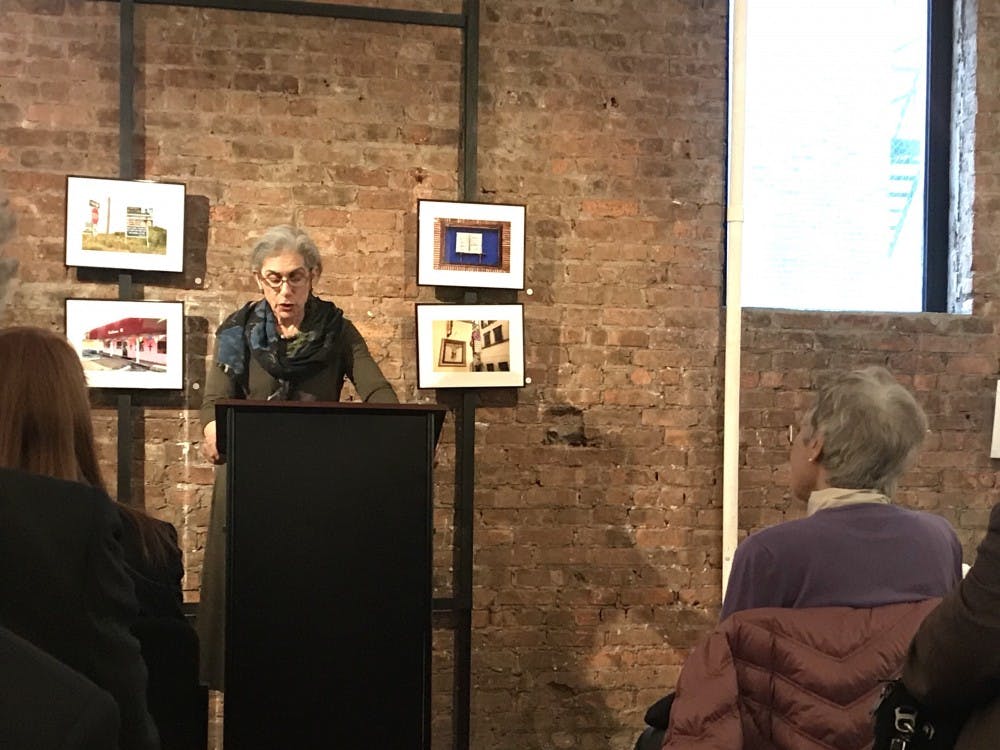
Controversial Penn Law School professor Amy Wax was presented with an award for her “academic courage” in wake of “continued harassment for speaking uncomfortable truths” by the National Association of Scholars in New York City on April 12.
The NAS is a conservative advocacy group that strives to combat a "liberal bias" in education. Peter Wood, the president of the NAS, presented Wax with the Peter Shaw Memorial Award for her "remarkable service of American higher education." The award is usually given to someone who has demonstrated exceptional academic freedom, but Wood explained the criteria was tweaked to accommodate academic courage, as the two are mutually dependent.
After receiving the award, Wax spoke to a packed room of more than 100 supportive audience members.
Titled "The Price of the Push for Equality of Result," Wax's talk touched on the widespread backlash she received after co-authoring a controversial op-ed praising bourgeois values and discussing the implications of the domination of the "progressive left" at Penn and at universities nationwide.
Wax questioned the motivations of her colleagues and Penn Law Dean Ted Ruger in “categorically rejecting” her views. She specifically took issue with Ruger's recent decision to ban her from teaching a mandatory first-year class.
“He offered no data to back it up,” she said about his email announcing the decision. “He said I violated confidentiality but cited no authority for this.”
“He speculated that black students assigned to my class may be adversely affected — what does that mean?" she questioned. "Any claim that I deliberately downgrade minority students is a non-starter; first-year grading is blind.”
Wax argued that majority of the allegations and actions being taken against her are based on feelings and depict a larger, more worrisome shift in civil discourse on college campuses.
“Rules like engaging in civil debate, giving reason justification, not calling name or using slurs and being honest and forthright are routinely violated at my institution and other institutions,” she said.
Calling academia today a “utopian equalitarian fantasy that depends on denial and banishment of those who dare to notice reality,” Wax contended that the progressive left was responsible for these violations.
She said the left’s domination over popular discourse has rendered students and faculty silent and unable to stray from the popular opinion in fear of being labelled racist.
“By requiring us to tell social untruths on pain of social death, this regime is humiliating and unfair and generates its own resentment and mistrust which often finds its way to the ballot box,” she continued.
Wax argued that marginalized groups have been given “veto power” over “what can be said and who can teach.” Citing their inability to function when faced with opinions that contradict those of their own, Wax further contended such groups “advertise their own psychological weakness” and fail to prepare themselves for future leadership roles in their professions.
“This cannot be called an education; it is a capitulation,” she said.
During the Q&A session, audience members, including Penn alumni, rose to support Wax, calling her “an inspiration” and a “national ornament.”
Audience member Carol Iyanone said she was impressed by Wax's talk, but was surprised to hear of the lack of support and extent of animosity coming from Wax’s colleagues at Penn.
“I felt that there was a kind of tyrannical mind-set in that, that if someone is made a social outcast, everyone has to shun them,” Iyanone said.
Audience member and former columnist for the National Review John Derbyshire said he agreed with Wax's views and that her courage was truly commendable and that overall, “she was splendid.”
The Daily Pennsylvanian is an independent, student-run newspaper. Please consider making a donation to support the coverage that shapes the University. Your generosity ensures a future of strong journalism at Penn.
Donate




